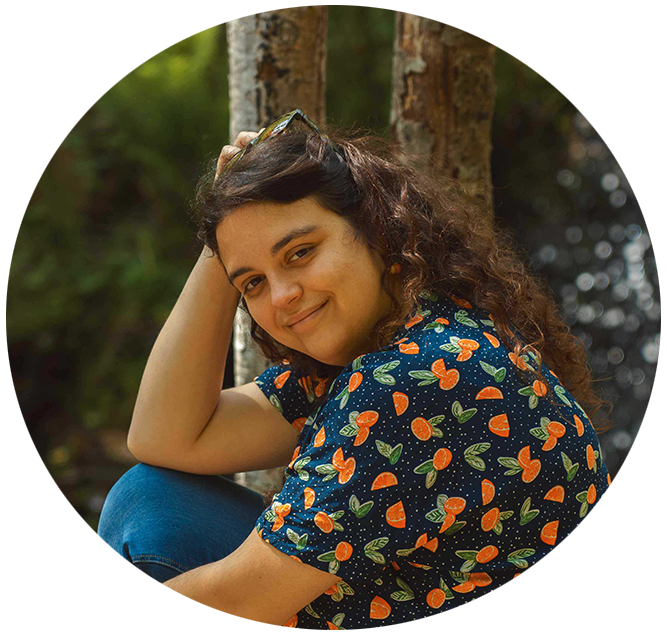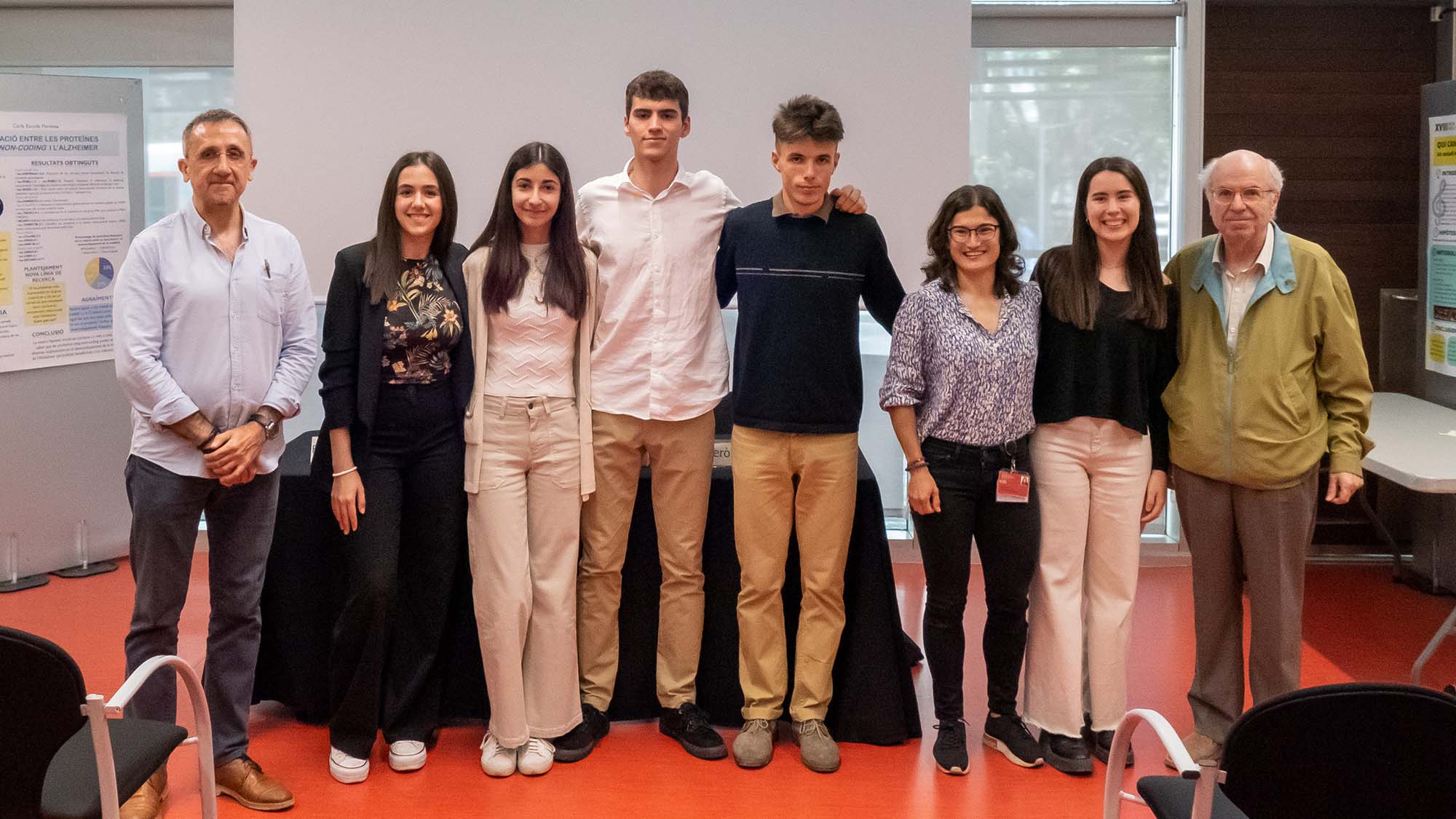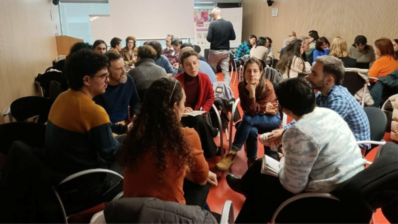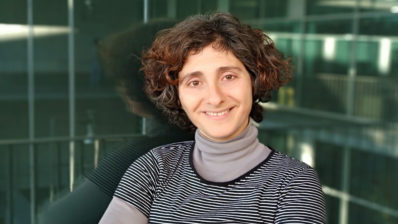For 18 years now, the Barcelona Biomedical Research Park (PRBB) and the Faculty of Health and Life Sciences at Pompeu Fabra University (UPF) have joined forces to organise the PRBB Award, which recognises the best research work in biological sciences carried out by high school students. In this way, they seek to encourage research in biomedicine.
In this year’s edition, 205 students from all over Catalonia took part and a total of 187 works were submitted. The selection of the best work consisted of several phases and the jury was made up of researchers from the different centres of the PRBB. The final selection of the winning project was made by Silvia Pérez from the Centre for Genomic Regulation (CRG), Gabriela P. Peralta from the Barcelona Institute for Global Health (ISGlobal) and Verònica Casadó from MELIS-UPF.
Last Thursday 27 April, the five finalists visited the PRBB to exhibit their projects in front of the jury, who had to make a decision during the event. Once their posters had been exhibited, they visited the Park’s facilities to see the research being carried out at the centres. Finally, they attended the prize-giving ceremony.
The processionary moth in Catalonia
Lluc Serrat Alemany from the Torre del Palau Institute in Terrassa was awarded the first prize. In his work, Lluc, has carried out an analysis and prediction of the future of the affectation of the processionary plague in Catalonia and in his city, Terrassa.
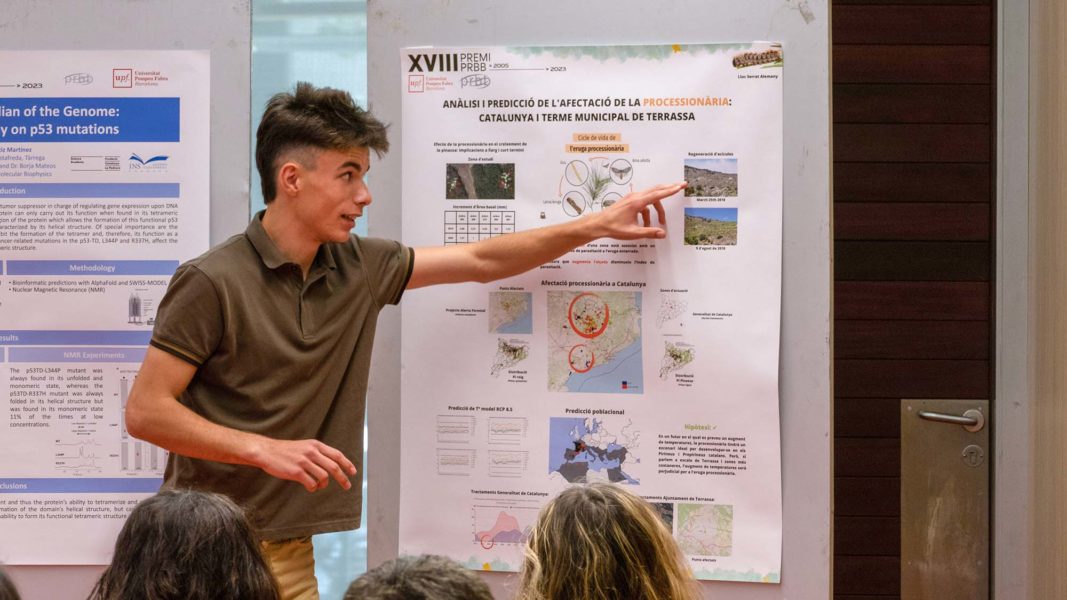
Does singing create happiness?
The second prize went to Maria Llobera Miquel, from the Jesuïtes Lleida – Col·legi Claver Raimat school. In her work, Maria has studied the relationship between singing in a choir and the bonds it generates and has also related it to the increase or decrease of oxytocin, the hormone of happiness.
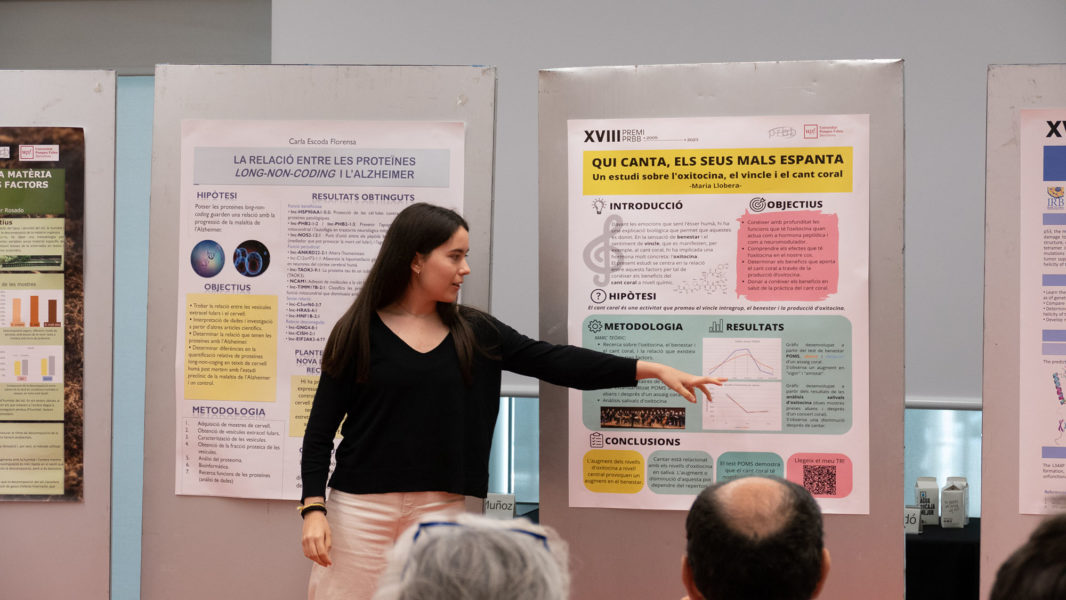
Decomposition of organic matter
The third prize was awarded to Roger Costa Corbella from the Santiago Sobrequés i Vidal Institute in Girona. In his research work, Roger has studied the variables that favour and decrease the decomposition of organic matter using bags of different types of tea.
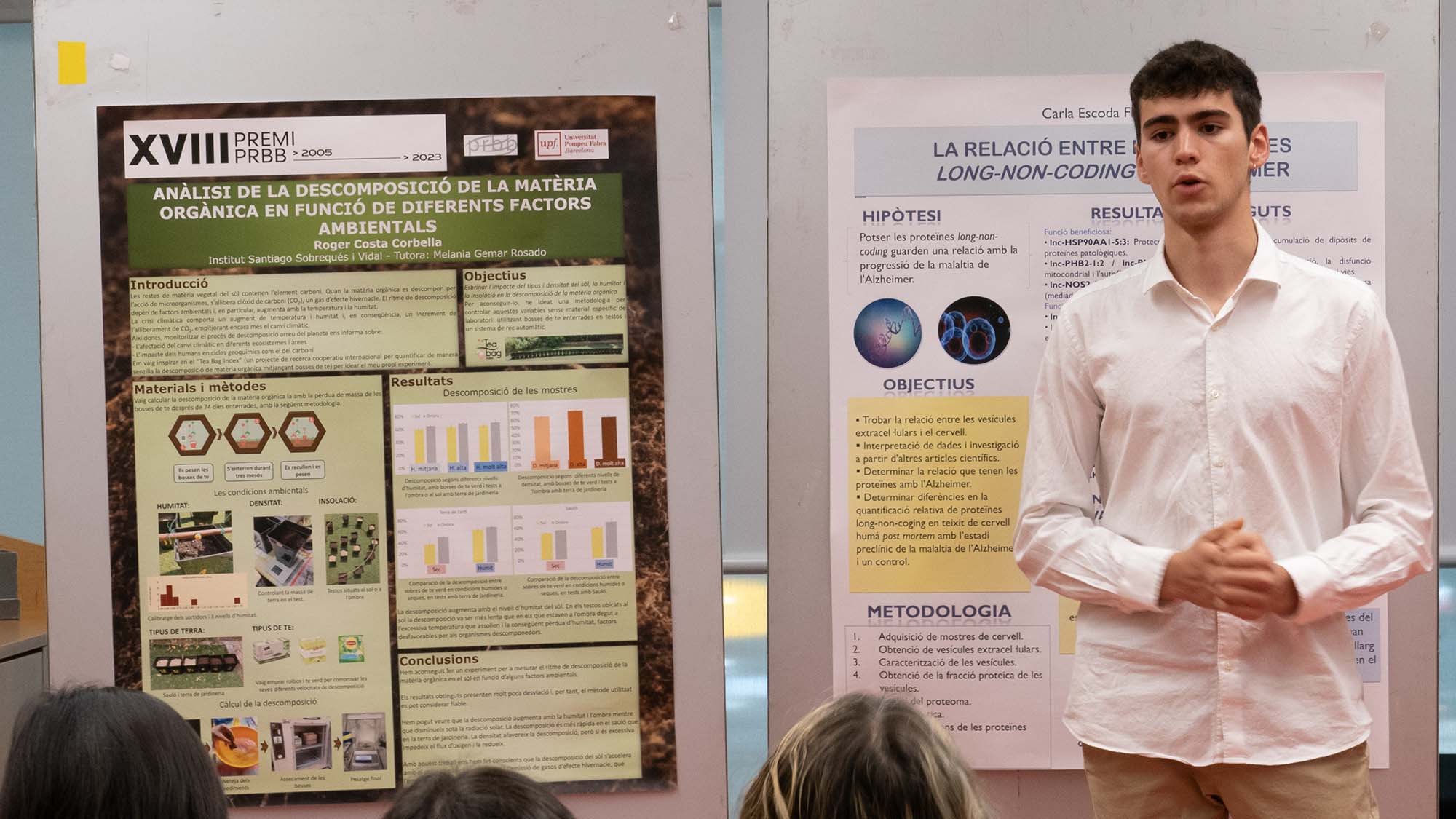
P53, the cancer suppressor protein
Cèlia Ortiz Martínez, from the Alfonso Costafreda Institute in Tàrrega, received the fourth prize. Her research consisted of analysing the structure and mutations of the p53 protein. When this peptide, which normally acts as a cancer suppressor, has mutations, it acquires a structure that does not allow it to be functional.
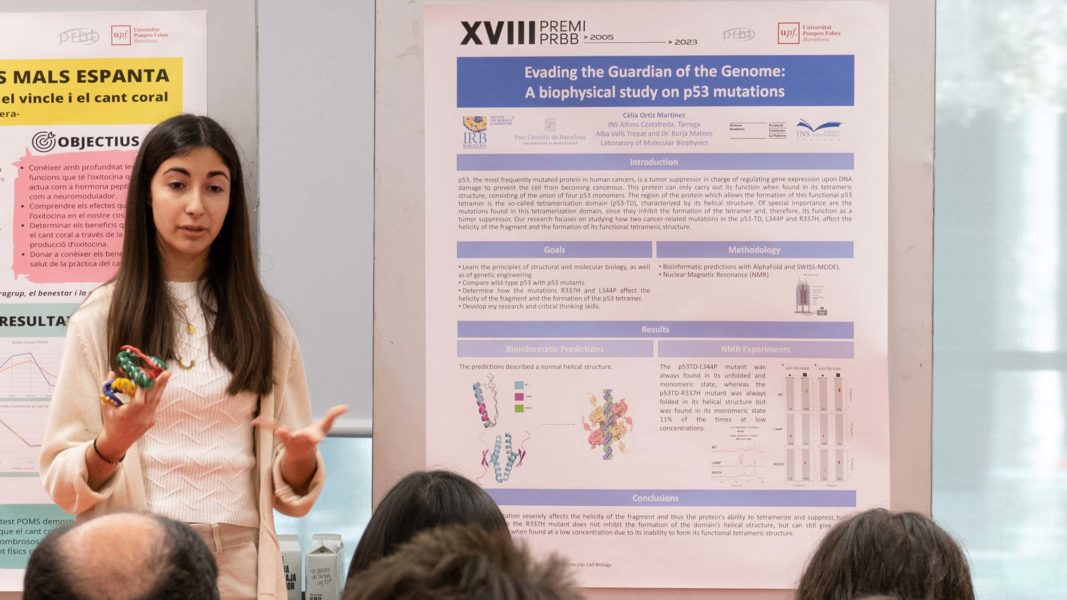
Non-coding proteins in Alzheimer’s disease
Carla Escoda Florensa received the fifth prize. A student at the Josep Lladonosa Institute in Lleida, using human brain samples, she has studied the relationship between the presence of long non-coding proteins and Alzheimer’s disease.
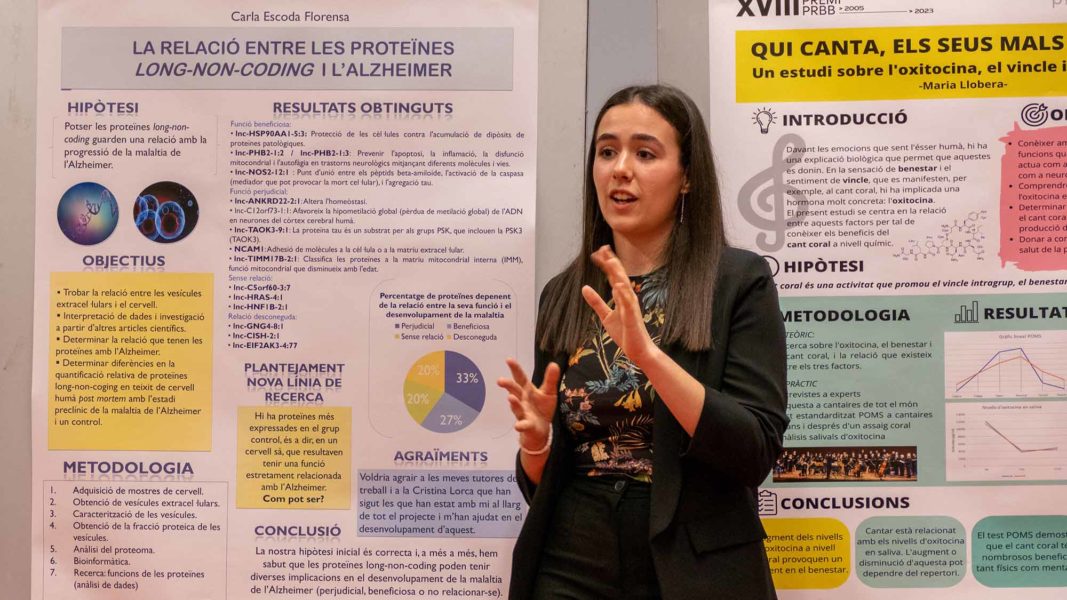
To end the day, Dr. Jordi Camí, director of the PRBB, Dr. Francisco J. Muñoz, representing the Faculty of Health and Life Sciences of the UPF, and the researcher Dr. Verònica Casadó presented the awards to the five young finalists.
Cèlia, Maria, Lluc, Carla and Roger, we can only congratulate you on your work! We hope that your adventure with research does not end here. And who knows, maybe in a few years we will meet again at the PRBB!
